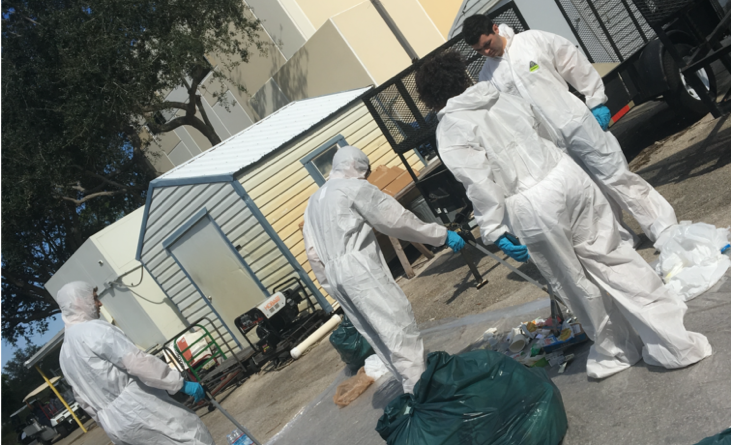Recycling Success
The Sustainability Committees Work Hard To Make Lynn Green
Lynn University’s recycling rates have improved from 12 percent at the end of the 2018 academic year to 23 percent in Feb. 2019, surpassing Lynn’s Sustainability Committee’s goal of 15 percent.
Two sustainability committees exist on campus: one committee includes faculty and staff, and one committee includes students. Both committees work to make Lynn a more sustainable campus and community. The committees implement sustainable policies, teach the community how to be more sustainable and make campus as green as possible.
Each committee has unique, individual goals and events, but the committees come together to tackle big issues on campus. Both committees benefit from working together because they get feedback from students, faculty and staff alike, optimizing the impact of the committees’ education and outreach efforts.
“One of the biggest issues we see here on campus is contamination in our recycling bins. Contamination is caused when something that can’t be recycled is thrown into the recycling bin. The biggest mistaken item seen is coffee cups,” said Zach Minich, the assistant project manager in the department of construction and sustainability. “The tricky part about this is that even items like plastic bottles and aluminum cans can contaminate the bin if they still have liquid in them. Unfortunately, when the bin is contaminated nothing gets recycled.”
After recognizing this issue, the Lynn sustainability team spent last academic year pushing recycling education in the community through events, recycling games, and digital media in the University Center and Residence Halls. This huge push in community education led to a large increase in recycling.
“As a student led organization on campus, [the student sustainability committee] encourages people to participate in events that create awareness,” said Shasmy C. Daly, sophomore. “Our main goal is to make sure students not only know but also apply the 3 r’s – reduce, reuse, recycle – on a daily basis. [We want to] make sure students don’t lose sight of what is important: our world.”
Nicole Sheaks, a senior studying environmental science, wrote her capstone paper on the behaviors and knowledge of Lynn University members in a recycling survey. The purpose of her study was to observe and test people’s knowledge and behavior regarding recycling. Sheaks aspires to improve the recycling rate on campus.
One-hundred and twenty-nine people participated in Sheaks’ study: one-hundred and twenty students, six faculty members and three staff members. Sheaks discovered that an alarming rate of students do not know what can or cannot be recycled.
“My professor Dr. Lecher made me aware of the low recycling rate on campus. I thought it would be a good idea to investigate the knowledge and behaviors of Lynn University students, faculty and staff to see what areas could use improvement to increase the recycling rate,” said Sheaks.
The sustainability committees will continue their recycling education efforts and start working with other organizations and departments on campus to reach students. It is important to teach students not only how to recycle properly but also how to live a holistically sustainable life.



